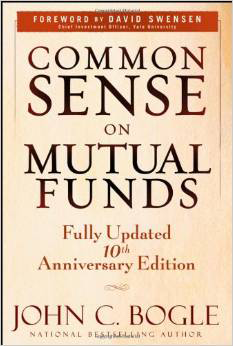
The management fee is the most common investment fund fee and is charged to fund the management and administration of assets. The amount is equivalent to a percentage of total equity and may vary between funds. Funds that require more analytical work, such as equity funds and currency funds, often have a higher management fee than more conservative products. For the Common Sense on Mutual Funds Takeaways this happens to be important.

Exit Rate
The output rate may be optional and is not present in all applications. It is usually levied on the amount redeemed when the quota holder sells his shares before the liquidity term stipulated in the fund’s regulations. You need to read the fund’s information material to understand if this rate is applicable for each situation.
IOF
The Financial Transactions Tax (IOF) only applies to redemptions made in less than 30 days. It is calculated on the return on the amount invested in this range and can range from 96% to 0%, depending on the number of days elapsed since application.
Like any other type of financial investment, mutual funds have risks, and they vary according to the aggressiveness of each modality. There is a simple rule: The bolder the fund is, seeking significant gains, the greater the risk that the investment will go wrong and the end result will be negative.
This is a financial market trend:
- Small Risk, Small But Safe Earnings
- High risk, high gain, but uncertain.
To evaluate the best investment for your profile, it is important to know the types of risks involved in the process.
Credit risk
Credit risk is related to the possible non-payment of income by the issuer of an asset. That is the institution behind the investment defaults and does not pay investors. Take for example a fund that has Treasury Direct securities. Who issues the bonds is the government. Therefore, as the chance of the country breaking down is small, the credit risk is low.
Strategy Risk
Strategy risk is related to the likelihood that the fund manager will not succeed in the strategy used to make the investments. As the expert said, this risk is greater for equity funds, for example, whose income is variable.
What are the advantages of investing?
There are a number of advantages of investing in an investment fund. The first of these is professional management, as your money will be operated by financial market experts. The second is related to the first and has to do with convenience. That is, you don’t have to do the hard work of researching the most profitable alternatives and analyzing the financial market. The managers do it for you.
Another advantage related to mutual funds is diversification.
Through them, you can invest in multiple markets at once and thus increase your chances of earning while protecting your money against one-time fluctuations of one modality. There are also tax-related advantages, as tax is withheld from the source and you don’t have to worry about declaring it. You can also cite the issue of transparency because you know exactly where you are investing and by what criteria the money will be operated.

